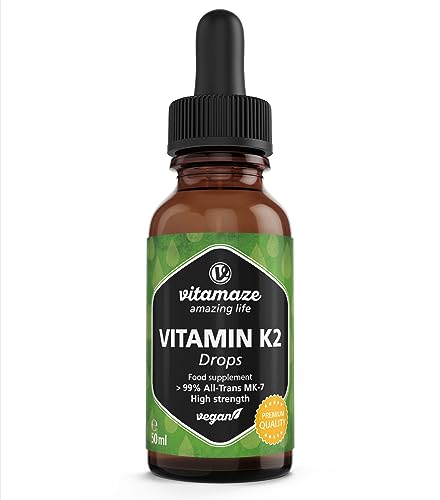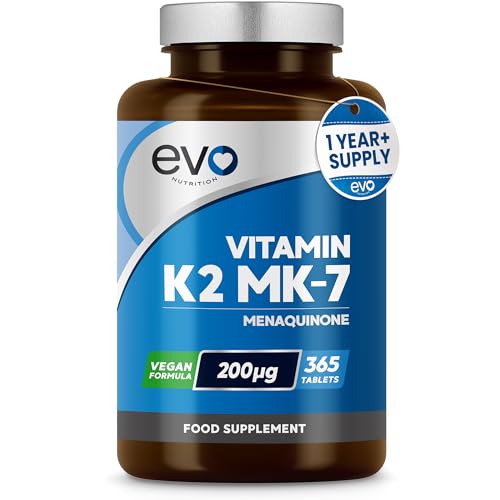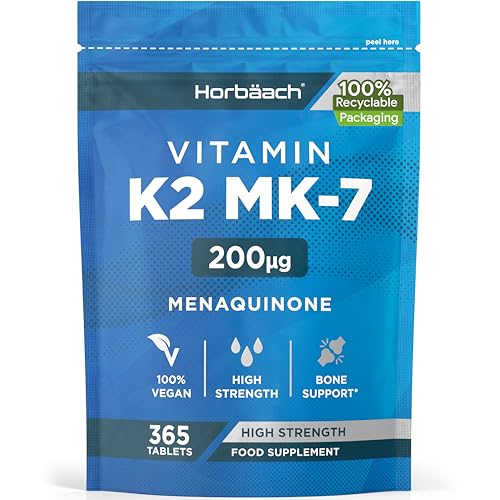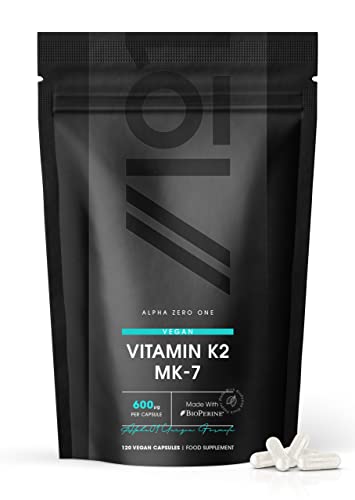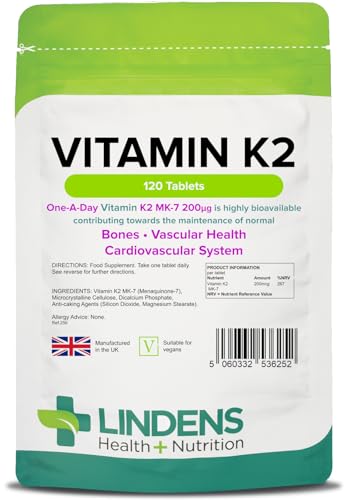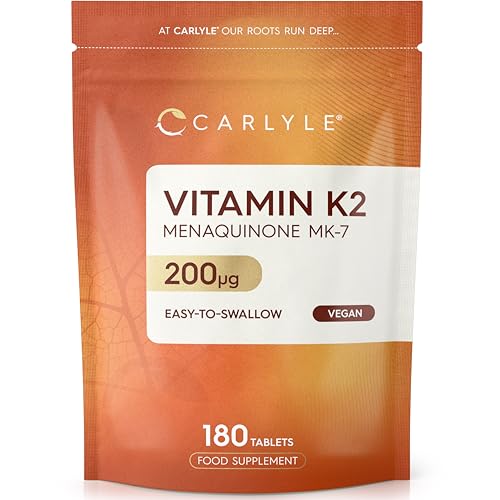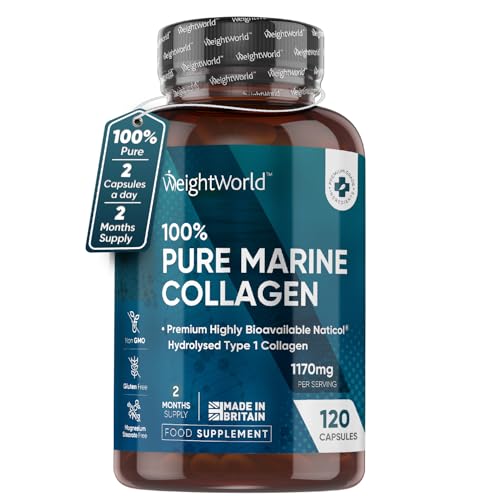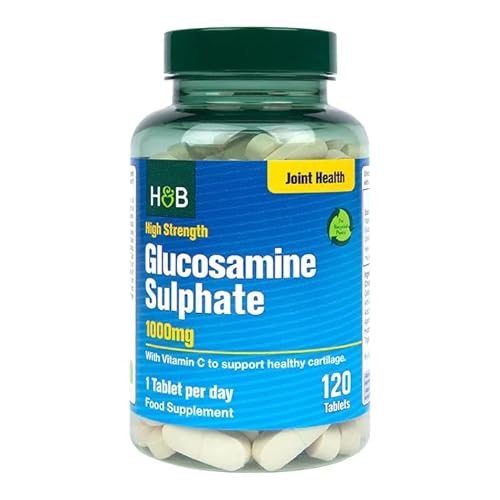Understanding Vitamin K2: What It Is and Why It Matters
What is Vitamin K2?
Vitamin K2, also known as menaquinone, is one of the two main forms of vitamin K. While we often hear about vitamin K1 found in green leafy vegetables, K2 is primarily found in fermented foods and animal products. It plays a crucial role in several bodily functions, particularly in blood clotting and maintaining bone and heart health. What makes K2 stand out is its ability to regulate calcium within the body; it helps to ensure that calcium is deposited in bones rather than in soft tissues.
Why is Vitamin K2 Important?
Understanding the significance of vitamin K2 goes beyond its basic functions. It supports the activity of osteocalcin, a protein essential for bone strength, thus contributing to the prevention of osteoporosis. Moreover, studies suggest that K2 enhances cardiovascular health by helping to prevent calcium from accumulating in arteries, which can lead to heart disease. By ensuring that our bodies use calcium in the right places, K2 carries the potential to significantly impact our long-term health.
How Vitamin K2 Benefits Your Health: A Comprehensive Overview
Bone Health
Vitamin K2 plays a pivotal role in bone metabolism. By activating proteins that bind calcium to the bone matrix, K2 ensures that bones remain strong and resilient. This action helps to reduce the risk of fractures as we age, making K2 particularly important for older adults.
Cardiovascular Health
Research indicates that adequate intake of vitamin K2 is linked to improved heart health. By preventing calcium buildup in arteries, K2 helps maintain vascular elasticity and function. This action supports overall cardiovascular well-being and is a preventative measure against diseases linked to arterial stiffness.
Dental Health
Interestingly, vitamin K2 does not only benefit bones and arteries; it is also vital for dental health. It assists in the remineralisation of teeth and helps to maintain oral health, potentially reducing the risk of tooth decay when combined with other nutrients.
Hormonal Benefits
Vitamin K2 may also play a role in hormonal health. It helps modulate testosterone and estrogen levels, which can have positive implications for reproductive health and overall hormonal balance.
Choosing the Right Vitamin K2 Supplement: Our Top Recommendations
Look for Quality Sources
When selecting a vitamin K2 supplement, it is essential to choose a high-quality source. Common forms of K2 include MK-4 and MK-7, with MK-7 being derived from fermented natto. We recommend opting for a supplement that provides a balanced dose of these forms for optimal absorption.
Pay Attention to Dosage
The appropriate dosage can vary based on individual health needs, but many supplements provide between 100 to 300 mcg of K2. It’s advisable to consult with a healthcare professional to determine the right dosage for your circumstances.
Consider Additional Ingredients
Some vitamin K2 supplements come combined with other nutrients like vitamin D and magnesium, which enhance absorption and work synergistically to promote bone and heart health. When reviewing options, consider whether you’d prefer a supplement that provides additional health benefits.
Integrating Vitamin K2 Into Your Daily Routine: Practical Tips
Incorporate Whole Foods
Integrating vitamin K2 into your diet can be as simple as adding more fermented foods such as natto, sauerkraut, and kefir. These foods are natural sources of K2 and can be easily consumed in salads, smoothies, or as side dishes.
Combine with Vitamin D
For enhanced effectiveness, we recommend pairing your vitamin K2 intake with vitamin D. This combination helps to maximise calcium absorption, making it easier for your body to utilise the nutrients effectively. You can achieve this balance through diet or through supplementation.
Stay Consistent
As with any health-related regimen, consistency is key. Making vitamin K2 a regular part of your diet or supplement routine can lead to more significant health benefits over time. Scheduling a specific time for your K2 intake can help you remember to include it as part of your daily routine.
Frequently Asked Questions About Vitamin K2: Clarifying Common Concerns
Is Vitamin K2 Safe?
Vitamin K2 is generally considered safe for most individuals when taken at recommended dosages. However, those taking anticoagulant medications should consult their healthcare provider before starting any supplement to avoid potential interactions.
Can I Get Enough Vitamin K2 from Diet Alone?
While it is possible to obtain vitamin K2 from a diet rich in fermented foods and animal products, many individuals may find it challenging to meet their daily requirements solely through food. Supplements can be a convenient way to ensure adequate intake.
How Long Does It Take to See Benefits?
The timeline for experiencing the health benefits of vitamin K2 can vary. Some individuals may notice improvements in energy and well-being within a few weeks, while others might take longer to perceive changes in bone density or cardiovascular health. Regular intake is essential to maintain its benefits.








